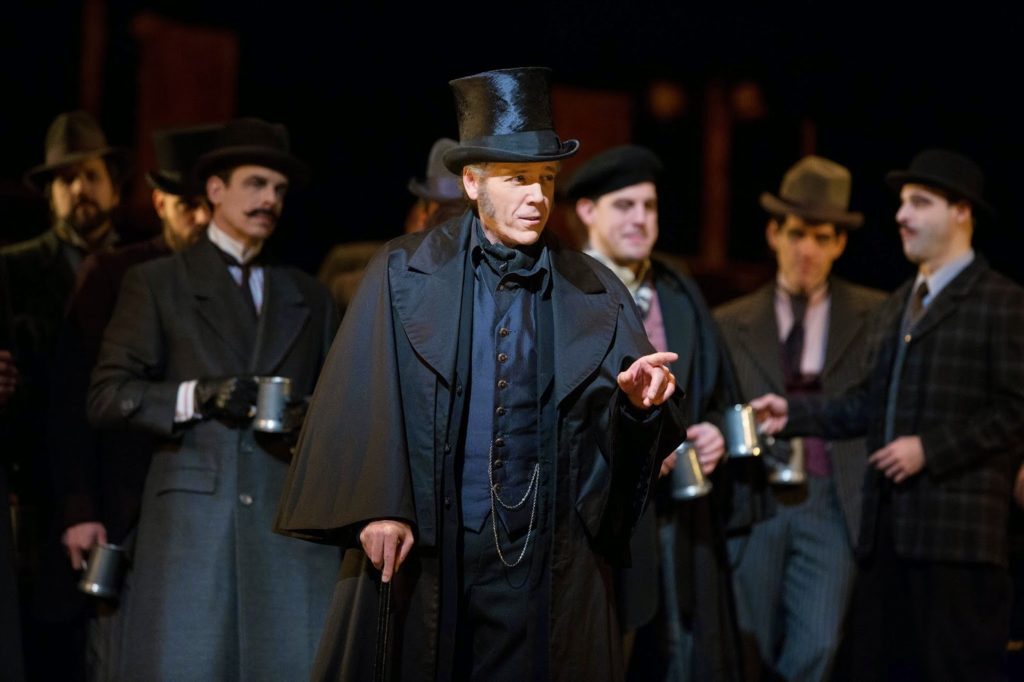Highlights from recent NYC performances

Thomas Hampson presented a Carnegie Hall recital on February 9, featuring an affecting and thoughtfully curated program:
“In classical music, the difference between art and artifact is made up by context . . . But give that music some meaning in terms of our own memories and cultural experiences, and it comes alive. No one in classical music does this better than baritone Thomas Hampson . . . Hampson and Reiger played some explicitly martial music, but for the most part they gave the audience music that turned war from policy into consequence: loss, death, haunted memories . . . There were two Langston Hughes songs, “The Negro Speaks of Rivers,” composed by Margaret Bonds, and Jean Berger’s great “Lonely People.” Bonds’ song may not be a masterpiece, but Hampson sang it like one . . . A true masterpiece finished the concert, Bernstein’s setting of an unpublished Whitman poem, “To What You Said,” from the composer’s Songfest . . . Bernstein’s song is one of the great art songs, of any time, in any language, and Hampson’s singing it is always one of the great experiences in music.”
George Grella – New York Classical Review
“Hampson sang the nostalgic “Tom Sails Away” and “The Things Our Fathers Loved” with misty-eyed melancholy in his voice, and his reading of “In Flanders Field” was stark and haunting . . . The second half of the recital opened with the world premiere of Jennifer Higdon’s Civil Words, which anchored the war theme of the recital . . . With his superb diction and careful attention to musical and poetic phrasing, Hampson was the ideal interpreter of this wordy yet emotionally packed cycle . . .”
Steven Jude Tietjen – Opera News
Hampson’s role debut as The Four Villains in The Metropolitan Opera’s Les contes d’Hoffmann was also heralded by critics for his “peerless” performance; “commanding” and full of “electricity”:
“In the antagonistic role of Lindorf and the other three villains was the peerless Thomas Hampson. The American baritone was an imposing figure in every single scene he was involved, providing a strong counterpoint to Grigolo’s increasingly unstable Hoffman. His voice also had a dark edge that oozed with venom. At any moment he could ignite into a rage filled with his trademark attention to text like few other singers could. He made a quick coloratura flourish in the second act trio frightening in its unpredictability and he was the devil himself in the Act 2 confrontation with Antonia. In the famous “Scintille, diamante,” in which Dapertutto conjured up a diamond that he plans to use to lure Giuletta, his voice took on an elegant polished quality, every phrase delivered with a reserved romantic ardor. The aria culminated in a fascinating high note that threw the audience into a frenzy.”
David Salazar – Latin Post
“(Prologue) Thomas Hampson established himself early as the dominant theatrical force, forging the character of Lindorf with swagger and panache, and establishing the electricity of the four villains . . . (Antonia) Here Hampson was at his most commanding, oozing evil out of every pore of Dr Miracle . . . (Giulietta) Hampson once again stood out in bas-relief, here his suavity and sinister cape containing the essence of evil and its domination of Hoffmann’s mad universe.”
Fred Kirshnit – Classical Source
Photo: Marty Sohl/Metropolitan Opera